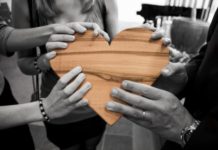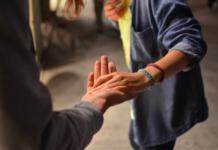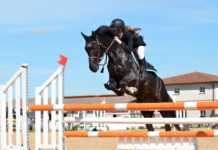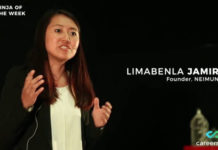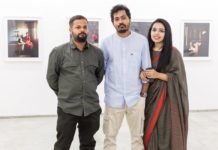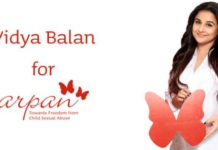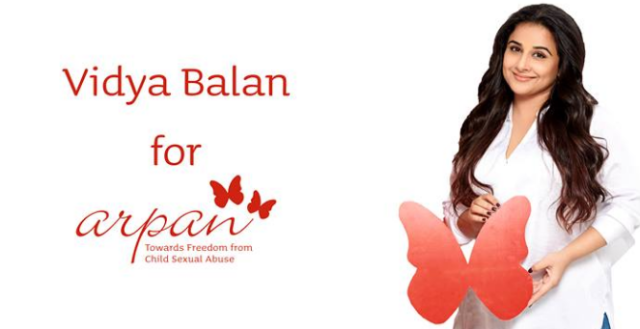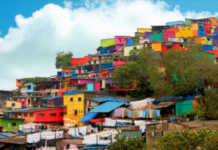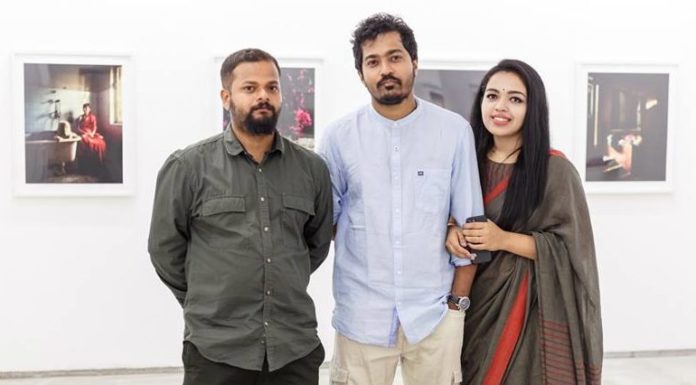Pooja Taparia has been awarded the ‘Architects of the Future Award 2013’ which recognizes exemplary work done by social entrepreneurs. Her life work has been permanently put up as a part of the Waldzell Collection, in the Melk Abbey, a museum in Austria. She was also awarded the Karmaveer Puraskar Award in 2010 by ICONGO in New Delhi for her work on Child Sexual Abuse.
A Commerce graduate, Pooja Taparia started an NGO called Arpan in the year 2007. She’s taken the team from 2 to 110 members in the last 11 years and mobilized over 3 million USD (over INR 20 crores) in funding for the cause of Child Sexual Abuse.
In conversation with Pooja Taparia:
Why did you first think of starting Arpan?
In 2003, I attended a function led by my Guru, Pujya Bhaishri Rameshbhai Oza. He spoke intently about “the attitude of doing Seva (service)”. Till date, I clearly remember the words of Bhaishri, “Seva is always done for one’s own self-emancipation and not to oblige anybody.” Post the session by Bhaishri, I gathered a small group of like-minded friends and immediately set up a NGO called Arpan.
What is it that you exactly do?
I’m the founder of Arpan. We work on the prevention of child sexual abuse and on healing those children who have faced abuse.We deliver programmes geared towards prevention and intervention services, training and capacity building as well as research and development in order to reduce the occurrence of child sexual abuse (CSA), heal its impact, and create safe and supportive environments for children and adult survivors of CSA. We also advocate for both public and policy level changes in order to reduce the occurrence of CSA, heal its impact and create safe and supportive environments for children and adult survivors of CSA.
It’s been 11 years of Arpan. What’s inspired you to keep going?
The difference we are able to make is visible to us. Even impact evaluation studies are showing that we are gradually, but steadily, making a difference. That’s motivation enough, not just for me, but even for my team. We are able to see prevention in process through the knowledge and awareness that we are spreading on the issue of child sexual abuse. Also, our healing services help children build resilience and heal from the impact of sexual abuse.


Are the children that you help from a specific socio-economic class?
We work with children across socio-economic strata. We work with BMC-run schools as well as private schools. Largely, our work is with the low-income and middle-income schools. Without discrimination, we are willing to work with all schools who want to implement the program of personal safety education.
What’s been the biggest challenge?
Breaking mindsets and changing people’s attitude towards this issue is the biggest challenge. In the earlier years, people didn’t recognize this as an issue. A lot of people still don’t want to accept the fact that child sexual abuse is a reality of life. It’s challenging to get people to accept that this is happening.
How do you overcome this challenge of caged mindsets?


We overcome the challenge of caged mindsets by spreading knowledge and awareness. We do this by building an authentic and holistic knowledge base on the issue of Child Sexual Abuse through Research and Development and creating evidence-based models. The numerous amount of media reports that cover child sexual abuse has contributed largely towards better awareness in our society. People are now moving from a ‘can’t happen to my child’ mentality to an ‘it can happen to anyone’ mentality. We advocate with relevant stakeholders like schools and NGOs to address the issue of CSA and integrate Personal Safety Education in their curriculum to overcome this challenge.
How far do you think you’ve come since you started out?
I think we’ve come quite far. As an organization, we’ve been able to push the agenda on child protection at the state and national level. We’ve been able to establish ourselves as experts in this sector. Other organizations are now reaching out to us for our expertise to deal with this issue. We’ve built curriculum that people can use and replicate. We are at a pivotal stage where we are looking to scale our work through partnerships. It’s an ongoing process and we still have a very long way to go. So far, we have reached 89,662 children and trained 4,245 professionals. Since Arpan’s establishment, we’ve held 38,971 awareness sessions and our total outreach has been 8,96,352!
When child sexual abuse is reported, what steps does your team take to heal the child and prevent the abuse from happening again in the future?
Our focus is on intervention and counselling. When a child reports abuse, we listen carefully to him/her and let them know that they’ve done the right thing. After that, we counsel the child to understand the details of the case. If the abuse is ongoing, we make sure it stops. That’s our primary goal. Even if the abuse has happened in the past, we make sure there is no future threat to the child. We never confront the abuser as that may make the case worse for the child. Instead, we do a lot of psycho-education with the family to make them understand the issue and how it is impacting the child.
Have you met with failure in your journey?
I wouldn’t term my failures as failures, but opportunities for learning. As an organization, we’ve had operational issues. There were times when we didn’t have enough funds or our team wasn’t in place. These things have happened a couple of times and we try our best to prevent them.


Can you tell us about the most defining moment of your journey?
An eight-year-old child who was in the third grade of some school told one of my trainers that it is so amazing that a stranger decided to take up this cause for children who are complete strangers to her. The fact that an eight-year-old thought in this manner and appreciated our efforts was very moving.
What are you most proud of?
I’m extremely proud of my team. I’m proud of everyone who decides to join this mission and do something for the cause of child sexual abuse. The dedication and sincerity with which people at Arpan work is just beautiful.
How do you push through stressful times?
I, myself, undergo therapy and that has helped me sustain this journey.
What/who has been your support through your journey?
I’ve had the good luck to have some amazing mentors and advisors who’ve given me direction when I most needed it.
Is there any particular quote that inspires you?
Mahatma Gandhi’s quote – Be the change you want to see in the world.
What’s next for you and your team?
We are continuing to work with around 30,000 children per year and imparting the personal safety education model to them. Our focus is also on training relevant stakeholders like counselors and social workers across the country. We are also experimenting with online prevention methods. Partnerships with the government and other organizations is another thing that we are doing to spread awareness.
Found this article interesting? Click here to read how this social entrepreneur is developing technology to ease the lives of the deaf community.



